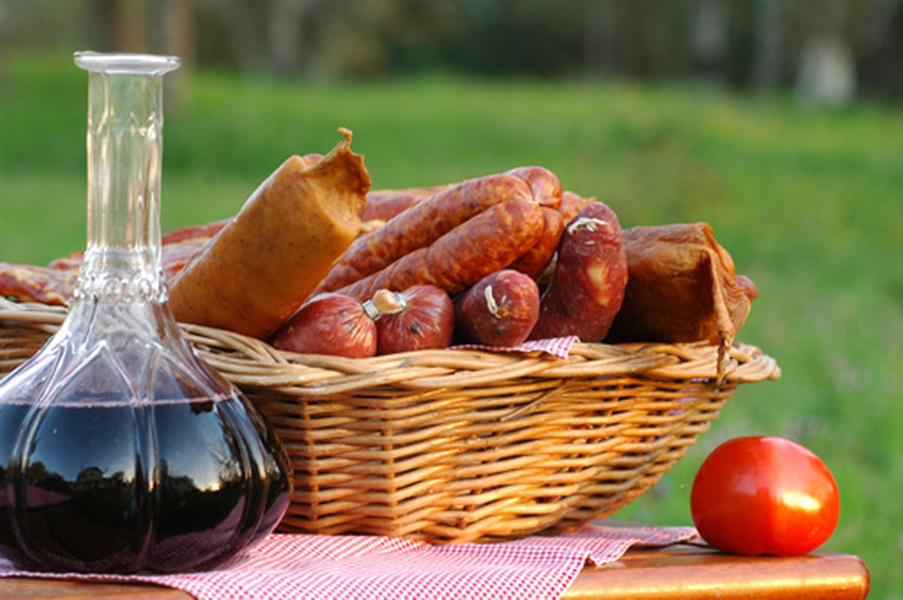

Charcuterie: Corfu's tradition of charcuterie goes back to the days when there were no refrigerators and people used various natural methods to preserve food. In the outlying pastoral district of Oros, families would slaughter their animals, usually a pig, at Christmas, salt the meat and leave it in a pot for around twenty days. They would then smoke it in the fireplace, hanging it from a meat hook high in the chimney. During this procedure they would burn lentisk branches so that the smoked meat acquired a special, delicate aroma. Noumbolo (made from pork fillet), pancetta (bacon), salado (wind-dried salami) and sausages were the products of that era which are still on the market today.
Noumbolo: a smoked meat product of excellent quality, made from pork fillet, traditionally produced in the region of Oros, where they also make salami and sausages
Bourdouni: a popular mezes, it is a kind of black pudding made with pig's blood, onion, parsley and various spices stuffed into the intestine. It is eaten fried and cut into thin slices. While in days gone by it was the most popular accompaniment to wine, today it is rare and can only be found to order.
Omira: is a plant similar to fennel which grows on the rocks of the seashore. In the fishing villages, people pick it and serve it as a salad, dressed with oil and vinegar..
Olives: (elies) the Corfiot variety is tiny and black, and while they do not produce 'virgin' oil, they are very tasty to eat. Sikomaida: or Sikopitta, is made from wine must and dried figs and flavoured with aniseed, pepper and ouzo. You can still find them in a few greengrocer's shops in the town
Tsitsibira (ginger beer): the trademark of the Seven Ionian Islands from the time of the British is now made only in Corfu. Using lemon juice, natural lemon oil, best quality grated ginger, water and sugar, one small factory on the island brews this historic soft drink in huge cauldrons. Most delicious and thirst-quenching, it is served in local cafes between Easter and autumn, and due to the great demand it is always freshly made. Those responsible for its manufacture say it can be kept for up to a year in a fridge, but a much greater lifespan has been recorded with bottles up to forty years old having been found in wells where people used to keep them cool!